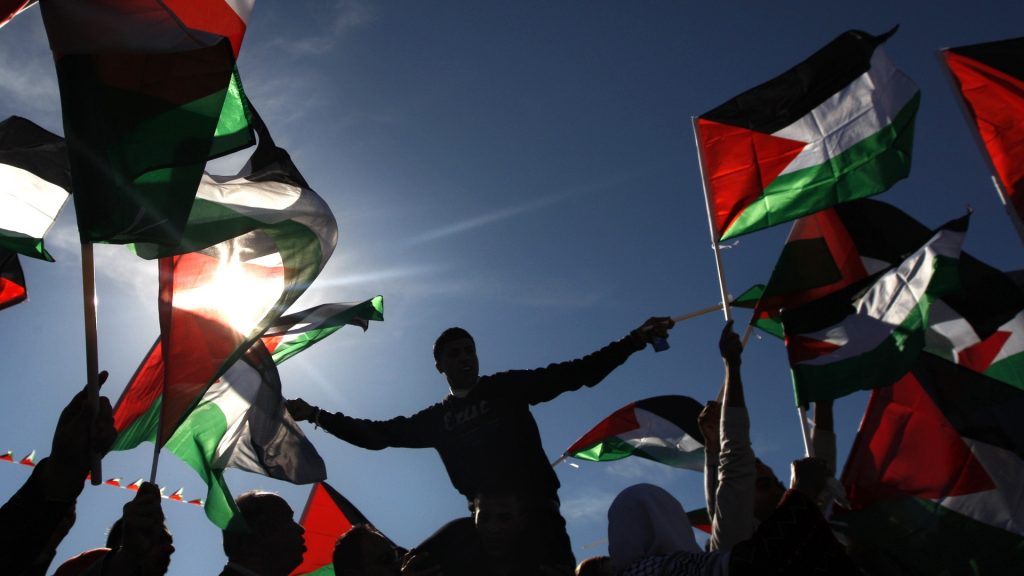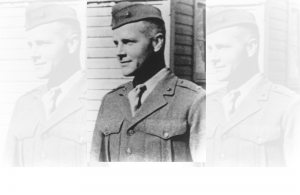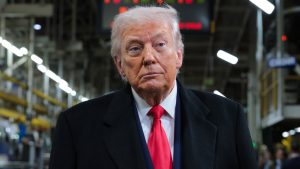UK, Canada and Australia formally recognize Palestinian statehood

The United Kingdom, Australia and Canada formally recognized the Palestinian people’s right to statehood on Sunday, marking a historic turning point in the three nations’ foreign policy stance. Although recognition of a Palestinian state is largely symbolic at this point, it does signify Israel’s increasing isolation on the world stage since it launched its war in Gaza nearly three years ago.
British Prime Minister Keir Starmer announced in July his government’s intention to recognize a Palestinian state at the upcoming United Nations General Assembly meeting in New York. That recognition, Starmer said at the time, would be made if Israel didn’t agree to a ceasefire and allow aid into Gaza.
It followed French President Emmanuel Macron’s recognition of Palestinian statehood earlier that month. By the end of July, Canada had joined the coalition of world powers, followed shortly after by Australia.
Carney, Starmer and Albanese issue statements
In a post on X Sunday, Canadian Prime Minister Mark Carney wrote, “Canada recognizes the State of Palestine and offers our partnership in building the promise of a peaceful future for both the State of Palestine and the State of Israel.”
Starmer, meanwhile, said the U.K. was recognizing Palestinian statehood “to revive the hope of peace for the Palestinians and Israelis, and a two state solution.”
And in a joint statement with Penny Wong, Australia’s minister of foreign affairs, Prime Minister Anthony Albanese said, “Today’s act of recognition reflects Australia’s longstanding commitment to a two-state solution, which has always been the only path to enduring peace and security for the Israeli and the Palestinian peoples.”
In his statement, Albanese detailed a number of prerequisites that he said Mahmoud Abbas, the president of the Palestinian Authority, agreed to. That includes a commitment to democratic elections, as well as financial, governmental and educational reforms.
“The terrorist organisation Hamas must have no role in Palestine,” Albanese and Wong wrote.
US, Israeli opposition to statehood
The growing recognition of an independent Palestinian state by Western powers is part of a concerted global effort to pressure Israel and Hamas to end the war or at least agree to a humanitarian ceasefire. Aid organizations hope to rush emergency food rations into Gaza amid an urgent mass starvation crisis, an effort the United Nations called “a test of our shared humanity.”
Israel launched its war in Gaza following Hamas’ surprise attacks on Oct. 7, 2023, during which more than 1,000 Israelis –– mostly citizens –– were killed, and another 250 were taken hostage.
The United States and Israel still vehemently oppose Palestinian statehood, with Israeli Prime Minister Benjamin Netanyahu saying such a move would reward terrorism and hand too much power to Hamas. However, world leaders who support statehood have maintained that Hamas should have no governing stake in the region.
Meanwhile, Israel has intensified its war in Gaza and widened its settlements across the West Bank. More than 65,000 Palestinians have been killed, and nearly the entire population of 2.1 million people has been displaced on numerous occasions.
Ahead of his trip to Israel in mid-September, U.S. Secretary of State Marco Rubio largely shrugged off the continuing Israeli occupation of Palestinian territory in the West Bank –– a significant sticking point in the path to a two-state solution.
“I think part of that is the reaction to –– that’s an Israeli reaction to efforts around the world to recognize a Palestinian state, including from countries in Europe and Canada and others that have signed on to this thing,” Rubio said. “I think that’s the Israeli response to that. And we warned them. We warned a lot of these countries around the world that that’s what would happen, or what we thought might happen, if they went ahead with this.”
Significant, but largely symbolic
Sunday’s recognition by the three British Commonwealth nations brings the total number of U.N. member states that recognize Palestinian sovereignty to roughly 150 out of 193. However, the move is largely symbolic without the support of integral players such as the U.S. and Israel itself.
“It’s significant for France and the U.K. to recognize Palestine because of the legacy of these two countries’ involvement in the Middle East,” Burcu Ozcelik, senior research fellow for Middle East Security at London-based Royal United Services Institute, told The Associated Press. “But without the United States coming on board with the idea of a Palestine, I think very little will change on the ground.”
Similarly, Olivia O’Sullivan, director of the U.K. in the World Programme at the London-based think tank, Chatham House, said, “This move has symbolic and historic weight, makes clear the U.K.’s concerns about the survival of a two-state solution, and is intended to keep that goal relevant and alive.”
Palestine became a non-member observer state to the U.N. in 2012, following a vote of 138 to 9, with 41 abstentions.
At the time, Abbas said, “We did not come here seeking to delegitimize a State established years ago, and that is Israel; rather we came to affirm the legitimacy of the State that must now achieve its independence, and that is Palestine.”
What might a two-state solution look like?
During a U.N. conference in New York co-hosted by France and Saudi Arabia on July 29, dozens of countries signed on to a call for Hamas to disarm and surrender power as part of a negotiated two-state solution recognizing both Israel and Palestine. The signatories included the Arab League, the European Union and an additional 22 nations.
The statement threw support behind the Palestinian Authority as an alternative government to replace Hamas. While still operating in the West Bank, the Palestinian Authority lost its governing power in Gaza to the militant opposition organization in 2007.
The call also presented the option of deploying a U.N. peacekeeping force to stabilize the region, pending the Palestinian Authority’s approval. Several countries present at the conference, including Arab states, offered to provide peacekeeping troops, marking a historic effort to build up global momentum for a negotiated settlement.
Hamas, however, has given no indication that it might consider disarming and surrendering power over Gaza, despite mounting international pressure.
Israel, meanwhile, has escalated its bombing campaign and recently intensified its operations in Gaza City, despite large anti-war protests across the country.
The post UK, Canada and Australia formally recognize Palestinian statehood appeared first on Straight Arrow News.





